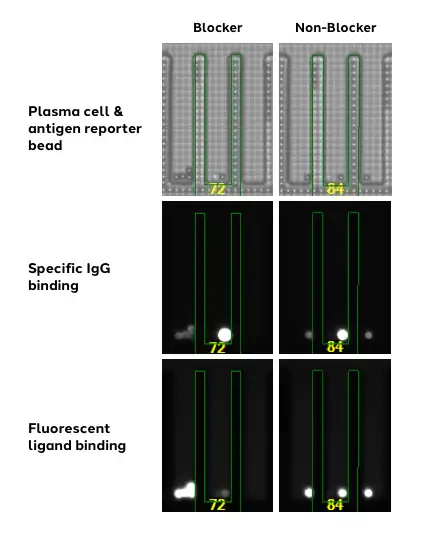Powering Your Success in Single B Cell Antibody Discovery with the Opto® B Discovery Application
Opto B Discovery on the Beacon® platform revolutionizes antibody discovery (AbD) with its function-first, high-throughput single B cell screening, maximizing the success of your antibody campaigns.
By conducting multiple functional assays, including antigen specificity, affinity, cross-reactivity, cell-based functions, and blocking assays, on tens of thousands of cells in a single run, the Beacon platform delivers the highest level of characterization for each single cell.
The Opto B Discovery workflows on the Beacon platform provides an unparalleled, efficient, and reliable solution for antibody discovery, ensuring your success with both easy and challenging targets.
Opto B Discovery Application
Revolutionizing Antibody Discovery
Develop a Deeper Understanding of Antibody Discovery with the Beacon Platform
Vast Portfolio of Flexible, Function-First Assays to Generate Rich, High-Parameter Data
Conduct up to 16 functional assays, including antigen specificity, affinity, cross-reactivity, ligand blocking, internalization, and cell-based function, on up to 60,000 B cells per run, generating up to 1 million data points and maximizing antibody characterization. Empower artificial intelligence (AI)-based antibody discovery by leveraging the rich, high-parameter data generated by the Beacon platform to train data-hungry AI models.
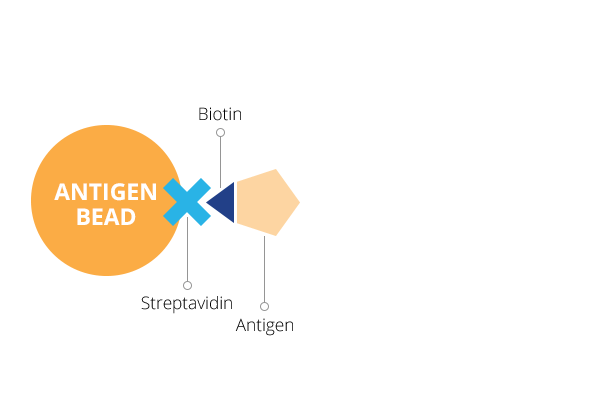
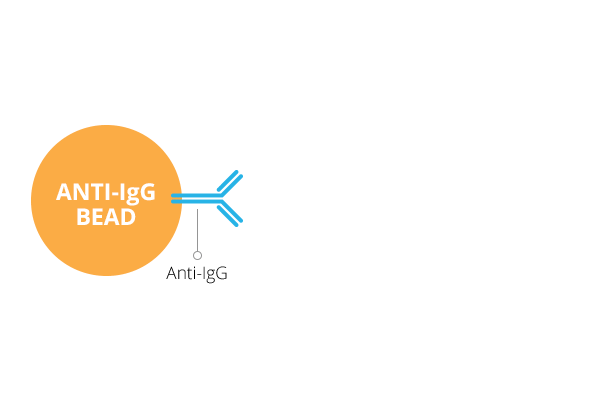
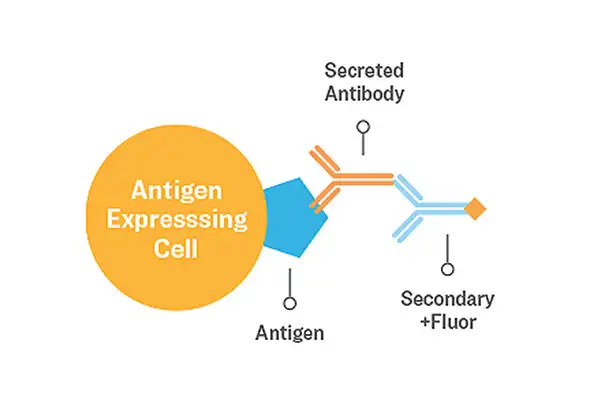
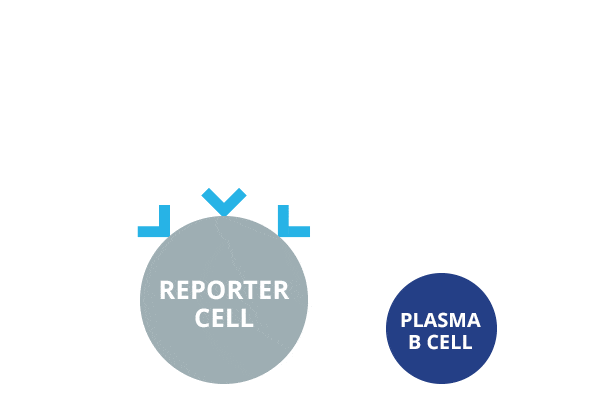

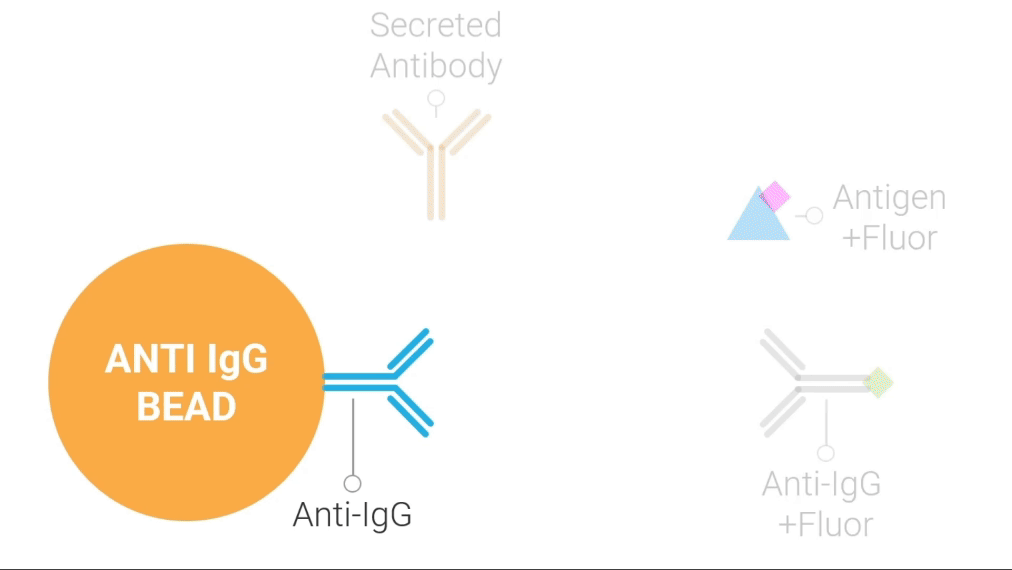
Optimize your antibody discovery process with the innovative Opto® B Discovery Affinity Assay. This cutting-edge tool allows researchers to rapidly rank antibody hits based on relative affinity, enhancing the selection of top candidates early in the discovery process.
Antibody Screening for Diverse and Challenging Targets
Screen antibodies across diverse species (human, mouse, rabbit, alpaca, and more), organ types (spleen, bone marrow, lymph nodes, and peripheral blood) and cell types (plasma and memory B cells), resulting in diverse antibody hits with even the most challenging targets, including multi-transmembrane proteins, targets with high host homology, and low immunogenicity antigens.
Screen Antibodies Across
Diverse Host Species
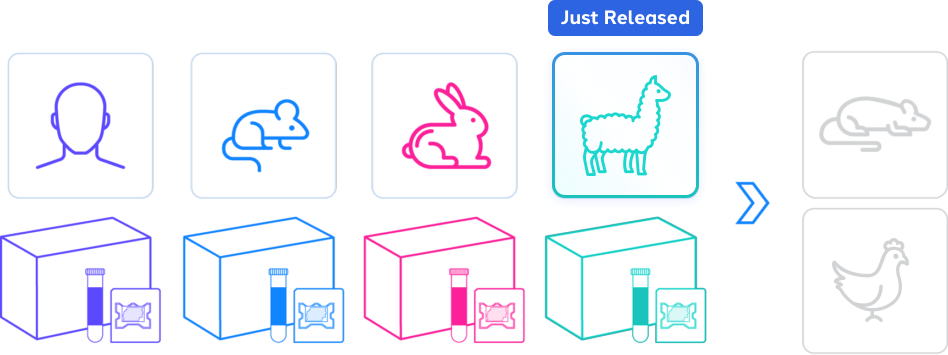
Generate Antibody Hits for Challenging Targets

Multi-transmembrane Proteins
Applying the Beacon Platform to a GPCR CampaignFrançois Romagné, Scientific Director, MImAbs
Opto Memory B Discovery Enables Multispecies Screening Capabilities
Opto® Memory B Discovery Camelid: Discover Heavy Chain Antibodies (HCAbs) with Single B Cell Screening
Versatile Assays Applicable Across a Wide Range of Research Areas
Empower screening with small-volume samples and customizable assays suitable for therapeutic antibodies in any disease area. Optofluidics are ideal for small or precious human samples (as few as a single patient draw) and enable broad applications, ranging from vaccine development for infectious diseases, discovering autoantibodies responsible for autoimmune disorders, and identifying novel antibodies against tumor-associated antigens (TAAs) for oncology.

Opto Memory B Discovery Human Workflow
Transcobalamin receptor antibodies in autoimmune vitamin B12 central deficiency
Natural malaria infection elicits rare but potent neutralizing antibodies to the blood-stage antigen RH5
Offering the Fastest Path From Sample to Lead
Streamline antibody discovery by minimizing screening time and expenses. B cells can be screened for functionality in just one day, allowing the advancement of only the most promising candidates. The single B cell BCR recovery & library prep kits convert exported hits into antibody sequences within a week. Additionally, one-step cDNA cloning facilitates the rapid expression of recovered antibodies, promoting efficient lead characterization and selection.
Rapid isolation and profiling of a diverse panel of human monoclonal antibodies targeting the SARS-CoV-2 spike protein
Hear the story behind the publication from Dr. James Crowe, Vanderbilt University: How Art Inspired the Development of the Covid-19 Vaccine
The Most Advanced
Antibody Discovery Platform
Function-First Total Solution for Rapid Antibody Discovery
At the core of the Beacon system is a combination of optics and nanofluidics called optofluidics. The OptoSelect® chips replace typical well plates. Each OptoSelect chip contains thousands of NanoPen® chambers, which replace wells on a microplate. This is where cells are selectively placed, cultured and characterized using a myriad of proprietary Beacon Platform assays.
Key Product Features
- Comprehensive assays: 1 million or more multi-modal data points for specificity, cross-reactivity, affinity, blocking, and function
- Broad species compatibility: Total end-to-end solutions for mouse, rabbit, human, and alpaca, with a rapid path to onboard others (e.g. rat, chicken)
- High-throughput screening: Up to 60,000 single cells screened for every assay you choose
- Automated sequence recovery: Recover 192 to 1000s of paired heavy and light chains
- Rapid single-day workflow
How It Works
Understand the life of single cells through functional cellular analysis with the Beacon Platform.
- Customized Clone Selection: Exquisite control of single cells maximizes antibody discovery success.
- Breadth of Functional Assays: Function-first assays enable deep characterization of single B cells in multiple sequential assays.
- Highest Parameter Functional Data: Integrated data analysis lets you link cellular function with genomics and transcriptomics to understand underlying molecular mechanisms.
Researcher Spotlights

Research & Datasheets
Beacon for Antibody Discovery
Unleash the Full Potential of
Your Antibody Discovery Research
Complete the form to connect with us and discover how the Beacon technology can enhance your Antibody Discovery programs.
Our expert team will be able to answer your questions, show you how the Beacon system works, and share the most relevant datasheets & case studies for your research.





